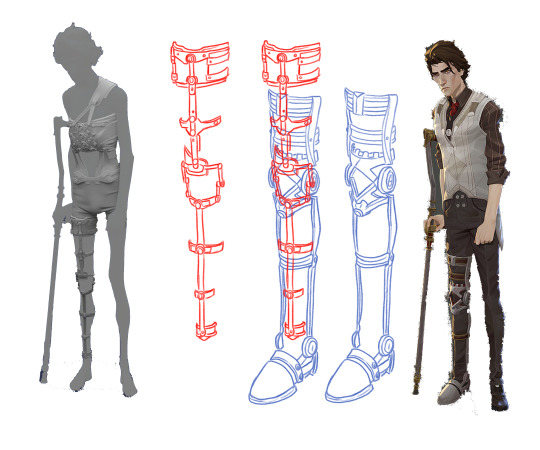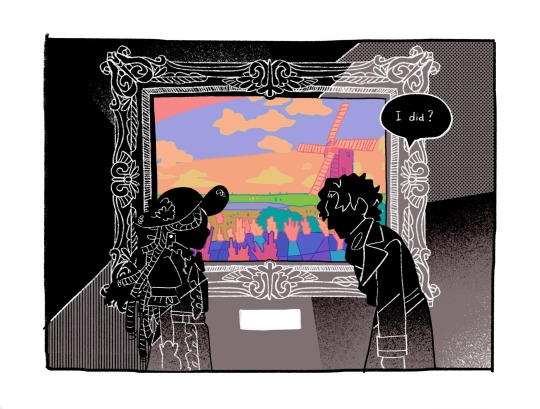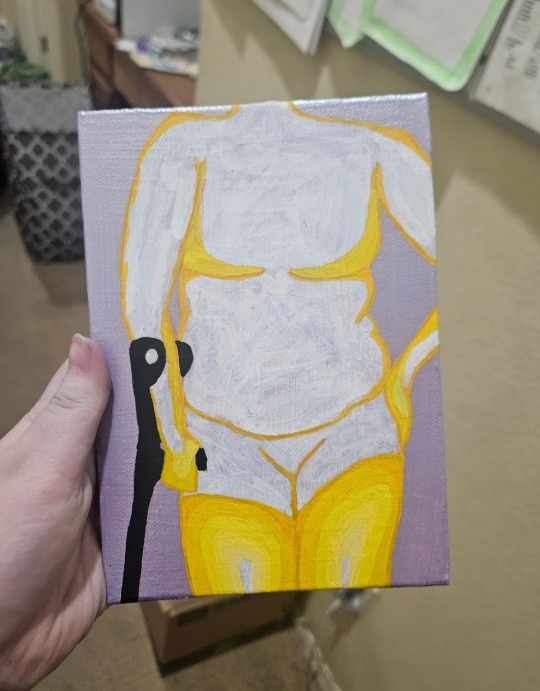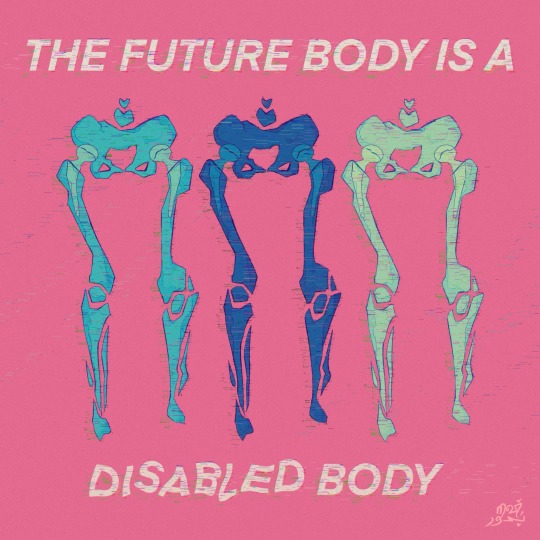#models of disability
Explore tagged Tumblr posts
Text

This is a friendly reminder that none disabled people often do benefit from the same accommodations disabled people benefit from.
#mobility issues#leftism#mental illness#autism#medical model#mobility aid#social model of disability
95K notes
·
View notes
Text

Was looking at refs and since Viktor has two different leg braces I was wondering, do we think he wears them simultaneously?? The refs don't perfectly line up perspective-wise so it's hard to tell but parts of the one he wears during the Hexcore scenes look like they could maybe line up with the brace that he wears over his clothes, but also some parts really don't and look like they'd be super uncomfy. Also HOW does he take these on and off. Experts weigh in
#viktor#arcane#ig my assumption would be that he wears both simultaneously cause in the scene where he injects the shimmer#it seems implied that he just threw off his clothes and kept experimenting#so one might assume he was already wearing the smaller one underneath#tho it is a funny image to think of him just being like 'one sec i gotta go all the way home and grab my other brace to do this'#he can take off the back brace too cause hes not wearing it in the scene where he's in the hospital bed and you can see his shoulder#where the strap would be#but that one seems to make even less sense functionality wise#everything looks like its screwed together#or screwed INTO him#but only the top bolts on his spine are i think#in the close ups of his back brace model it looks like theres cushioning underneath the parts of it that cover the rest of his spine#so he can take it off. but HOW#what parts of it unscrew/detatch to pull open and off#does it not do that at all and he just has to shimmy it off his shoulder and all the way down his legs to get it off like a romper#the shape language of the designs are cool but like. tell me how it wooorrkkksss#forgive me if im just dumb and dont know at all how braces work and theres a very simple practical explanation for all this#any king who wants to infodump about mobility aids at me....the floor is yours#something to be said i suppose about the fact that zaunites have crazy prosthetics with wild augmentations that work flawlessly#and piltover's like. idk heres some fucking uncomfortable ass metal. salo gets wheelchair in non ada compliant place#they havent ever needed to adapt to accommodate disabilities etc etc#or maybe artists were just like 'heres a design' and everybody clapped and didnt give it a second thought#and then they just turned off the visibility on the mesh when they didnt need it knowing thered not be a scene where its taken off#dont even wanna THINK about what that rig would look like#like 40 different controllers#soft body and rigid hard surfaces needing to move together....#a cold chill just shot up my spine#<- guy who is only an animator and doesnt know how to rig#forgive the magic wand tool with zero cleanup. i am lazy
5K notes
·
View notes
Text




















SELKIE Fall/Winter RTW 2025 if you want to support this blog consider donating to: ko-fi.com/fashionrunways
#selkie#fashion#runway#fall rtw#fall rtw 2025#fall winter#fall winter 2025#ready to wear#2025#edits#model: plus size#model: disabled
3K notes
·
View notes
Text
Free Manual Wheelchair Reference Models

ID: A banner with grey 3D models of 5 kinds of manual wheelchairs in a line in front of the disability pride flag and text that reads "Manual Wheelchair References" /End ID
For disability pride month, I decided to release a pack of 3D manual wheelchair models.
The pack includes 5 wheelchairs:
2 Active urban-style chairs (one of which includes a smart drive)
1 off-road active chair
1 children's wheelchair
and 1 standard "hospital" wheelchair).
All the wheelchairs are based off either wheelchairs I or friends of mine have used
Downloadable here!
or on the Clip Studio Paint Asset Store (ID 2097442) (there's been an issue with the CSP version, but the models in the download folder can be imported into clip studio paint until I can fix it)
More info about the download contents below:
The first download link includes the original .Blend file with all 5 chairs, as well as individual .obj or .fbx files the chairs (All but 1 have an .obj file, as they're only meshes. The chair with the smart drive is rigged, which is why it has an .Fbx file instead so it will retain that information) as well as a "read me" file that explains in more depth what kind of disability/character/lifestyle each chair is made for (These are just what I had in mind when I designed them, they are usable by other characters who don't fit the suggestions for the most part!) I wanted to include the Read Me contents in the CSP Asset Store listing, but CS said it was too long lol.
Also, as the title says, these files are free to use! While it's not mandatory, I would appreciate credit if you use them (or even just a tag so I can see the cool art you make with them!!)
I actually made these ages ago, the original plan was to use them in a series of posts then release the pack, but I never got around to making the series and so they've just been sitting here. I took a day off from art fight attacks to clean them all up and get them ready to post. If you experience any issues, let me know and I'll try to fix it up.
I had a couple more that were supposed to be in the pack including a sports (basketball/Tennis) wheelchair and some different styles of wheelchair, but I think the files corrupted so once I fix (or remake) them, I'll probably make a second pack.
If you have any issues, please let me know!
#Writing Disability With Cy Cyborg#Disability in art#wheelchair#wheelchair user#disability#disabled#disability representation#mobility aids#drawing disability#drawing wheelchairs#art reference#art resources#Resources#manual wheelchair#art stuff#disabled artist#3d#3d model#blender#disability awareness#disabilities#disability in media
12K notes
·
View notes
Text

A little doodle of my vtuber, sprout, in the powerchair I designed for him — because i’m getting one. 🍒🥝🍇🍌🍉
#my art#art#disabled artist#original characters#disabled art#illustration#wheelchair user#powerchair user#powerchair#vtuber model#vtuber design#vtuber#disabled vtuber
591 notes
·
View notes
Note
*Breaks into your house to stare wistfully out the window* Do you ever think that CTHenry is, at least by some perceptions, a corpse being kept alive by gold dust and the whimsy of a goddess whose motives are unknown? I do. *Puffs on bubble pipe* Anyway. I'm still holding out hope for a happy ending for our Miserable Train Gays. Iram gentlemen. Have a good day 💗
























out of sight, out of mind
#asks#sterling-starlight#tw ableism#<— just in case#thomas the tank engine#thomas and friends#ttte henry#ttte gordon#ttte james#ttte thomas#ttte percy#casa tidmouth#senjart#heavily inspired by yellowcake Please be niceys to me.#hooray! the nwr workplace environment that’s true to the early model seasons!#interpreting henry's sudden shape change and the whole thing with the special coal (both its need and obsolesce) in human form--#--with the addition of existential dread AND the panicked ramblings of a man who got his whole life turned upside down#it’s amazing how alive henry looks despite the tiny amount of gold dust left in the shining time world at that time#and how its number dwindled further in present cstm#henry with a forlorn expression wearing a shirt that says ‘’I am god’s favorite soldier’’#is lady here real? or a projection of henry’s inner thoughts towards himself —#— because he can’t bear the idea that he’s actively mocking his own self and it wasn’t anyone else#(at least not anymore)#and if she’s real is she projecting her own lack of autonomy to someone who’s always hit with one misfortune after another…..#when your entire existence was to make sudrians happy for more than a thousand years#and you remain in solitude watching the humans you tended to come and go#so you bury your curiosity and longing so humanity can be happy#yet you can’t help but just strongly relate to this one poor guy#until the time comes in 1999#also this is as much of a study/character expansion/hc thing as much it is for my outlet for my feelings about my disabilities
340 notes
·
View notes
Text
one thing i did appreciate wrt disability in the vorkosigan saga is that miles never becomes less disabled
he's in a space future, hes able to get some treatments and learn to manage his own emotions about his disability better but despite synthetic bones he ends the series as, if not more, visibly disabled than when the series begins
he no longer has to worry about brittle bones, but now he has controlled seizures and regularly uses a cane
most of these changes happen due to Plot but feel reminiscent to my own experience dealing with a chronic illness. there is a chance I will be able to control my condition using weekly injections, but like miles and his seizure simulator, this is something I will have to manage and plan for across the rest of my life
(also more characters being occasional cane users/cane users who do it for pain management gives me life)
#loaf to void#vorkosigan saga#quaddies also exist at an interesting example of social model of disability within the books#where they are disabled only in gravity and yet more abled than most in free fall situation#i still havent read free falling so i dont know exactly how much to comment#but there is such a range of type of disability in the series that i think is really good
132 notes
·
View notes
Text



hi yall! im doing a painting series of plus size disabled bodies!! i am in need of some more models! if you want to use your aids that is most welcome! feel free to show off any disability aids or whatever like colostomy bags or hearing aids etc! you do Not Need to be nude for these but if your comfortable it will be in this style where you wont see anything anyways, i did just bra and underwear, anyways DM me if you want to participate! this is not an excuse to send explicit nudes, if you do i will block you, this is for art only and as soon as im done with the sketch ill be deleting the picture! thank you so much!!!
#art#disabled#artists on tumblr#artwork#help#actually disabled#disability#invisible disability#physical disability#chronically ill#artist#art model
59 notes
·
View notes
Text
The Other Half of the Social Model of Disability
Lots of people in fandom are aware of the Social Model of Disability, which is a direct contrast to the Medical Model of Disability. Problem is, most of those people only understand half of the Social Model.
If you don't know what I'm talking about, the "in a nutshell" version is that the medical model views disability as something that is broken and which needs to be fixed, and little or no consideration is given beyond trying to cure it (and little or no consideration is given to the needs and wishes of the person who has it). The social model of disability, on the other hand, says that the thing that disables a person is the way society treats them. So, for example, if someone is paralyzed and can't walk, what disables them from going places is buildings that are not wheelchair accessible. (Or possibly not being able to afford the right type of wheelchair.) Inaccessible spaces and support equipment you can't afford are choices society makes, not a problem with the disabled person.
People then take this to mean that the only problem with disability is the society that surrounds it, and therefore in some utopian future where capitalism is no more and neither is ableism or any other form of bigotry, all problems disabled people have will be solved.
Except that what I've just described is not actually what the social model of disability says. Or, rather, it's only half of what the social model of disability says.
The actual social model of disability begins with a distinction between impairments and disabilities. Impairments are parts of the body/brain that are nonstandard: for example, ears that do not hear (deafness), organs that don't work right (e.g. diabetes), limbs that don't work (paralysis), brain chemistry that causes distress (e.g. anxiety, depression), the list goes on. The impairment may or may not cause distress to the person who has it, depending on the type of impairment (how much pain it causes, etc.) and whether it's a lifelong thing they accept as part of themselves or something newly acquired that radically changes their life and prevents them from doing things they want to do.
And then you have the things that disable us, which are the social factors like "is there an accessible entrance," as described above.
If we ever do get a utopian world where everyone with a disability gets the support they need and all of society is designed to include people with disabilities, that doesn't mean the impairments go away. Life would be so much better for people with impairments, and it's worth working towards, but some impairments simply suck and would continue to suck no matter what.
Take my autism. A world where autism was accepted and supported would make my life so much easier ... and yet even then, my trouble sleeping and my tendency to hyperfixate on things that trigger my anxiety would still make my life worse. I don't want to be cured of my autism! That would change who I am on a fundamental level, and I like myself. My dream is not of a world where I am not autistic, but a world in which I am not penalized for being autistic and have the help I need. And even in that world, my autism will still sometimes cause me distress.
There are some impairments--conditions that come with chronic pain, chronic fatigue, etc.--where pretty much everyone with that impairment agrees that the ultimate goal is a cure. But nobody knows how long a cure will take to find (years? decades? centuries?), whereas focusing on the social things disabling you can lead to improvement in your daily life right now.
In conclusion: the social model of disability is very valuable, and much superior to the medical model on a number of levels. But: please don't forget that the social model makes a distinction between disability and impairments, and even if we reach every goal and get rid of all the social factors that disable people, some impairments will be fine and cause no distress to the people who have them, some will be a mixed bag, and some will still be major problems for the people who have them.
Also on Dreamwidth
796 notes
·
View notes
Text























SELKIE Fall/Winter RTW 2025 if you want to support this blog consider donating to: ko-fi.com/fashionrunways
#selkie#fashion#runway#fall rtw#fall rtw 2025#fall winter#fall winter 2025#ready to wear#2025#edits#model: plus size#model: disabled
2K notes
·
View notes
Text

THE FUTURE BODY IS A DISABLED BODY //
452 notes
·
View notes
Text
To everyone who draws Hawkeye with his hearing aids/different type of hearing aids in his Marvel Rivals design I need you to know I love you
And to those who even incorporate it into his alternate skins even?
Kissing you RIGHT on the mouth
#marvel rivals#hawkeye#clint barton#canon disabled character#deaf character#deafness#deafawareness#disabled person#disabled representation#marvel#belladonna rambles#I was looking at the WinterHawk tag and wanted to cry at seeing people incorporating it in#even though his in game model doesn’t have any#people still know and don’t let it slide#I am not deaf but it makes me so happy to see this shit normalized#same for people treating moon knights DID more serious and more people becoming aware that Bruce and Hulk are DID as well#gives me hope#the future doesn’t look so scary for a disabled person like me anymore#ya know?#this is why representation matters#it matters so much man#keep it up#least know I appreciate that shit#i appreciate it so much#love that shit#eating it up#every time#delicious#good shit#the best shit even
53 notes
·
View notes
Text



Top looks this week in the ShopShifty store:
Rat Shirt - Everything I know about girls I learned from a garden gnome - Disability Pride
#rats#disability pride#disability#gnomes#our shirts#thank you for supporting queer disabled indie bullshit#today's stock model theme: people looking right
314 notes
·
View notes
Text
The main takeaway from s3 for me:
PHONES ARE TRACEABLE EVEN WHEN THEYRE OFF I FUCKING TOLD YOU I TOLD EVERYONE IVE BEEN COMPLAINING ABOUT THAT INACCURACY SINCE S1 OH MY GOD
VINDICATION ‼️‼️‼️
#jwct#chaos theory#jurassic world chaos theory#ben pincus#he was NOT being insane TYVM#jwct s3#jwct season 3#seriously tho if you plan on going to any marches or protests look into how best to disable Your model of phone#iPhones specifically have some unique hurdles#and never have fingerprint or Face ID enabled when you think you might run into cops
65 notes
·
View notes
Text

mcyt physically disabled week day four: invisible disability | flare up
i just wanted to draw something related to chronic pain for my own sake, and i figured if i was gonna draw the thing i have i might as well be self indulgent about it!! you know i’ll take any excuse
#my fuckoff sized bottle of advil modeled for this ^_^#mcyt physically disabled week#qsmp#spiderduck#quackity#roier#my art
407 notes
·
View notes
Text
Thousands of people did not just suddenly stop using headphones one day because they felt like it, or because they stopped caring about people with sensory sensitivities like me. No, people stopped using headphones because cell phone manufacturers stopped including headphone jacks in their products.
My sensory-processing issues are a physical element of my disability that would absolutely still exist in a world without capitalism. Like my poor fine motor control and reduced muscle tone, my sensory processing issues debilitate me: there are tasks I simply cannot perform because of how my body is wired, and this makes me different from most other people in ways that are non-negotiable. Still, my physical disabilities are worsened quite clearly by capitalism: Because large corporations have both a profit motive and a vested interest in reinvesting those profits into advertisements, and because the internet does not receive public financial support, my daily life is bombarded with bright, noisy, flashing, disruptive advertisements, which makes it far more difficult for me to process relevant information and can swiftly bring me to the verge of a meltdown. If the internet were funded as a public utility and was therefore not sandblasted in ads, I would be less disabled. If my local streets were less plastered in billboards and littered with junk mail advertising chain restaurants, I would be less disabled.
Because companies like Apple financially rely upon consumers replacing their phones on an annual basis (despite how unsustainable and murderously cruel continuing to mine cobalt in Sudan for the production of all these new phones is), I must replace my phone regularly. With an updated phone model I lose my headphone jack and have to adapt to a new operating system and layout, and so my sensory issues and executive functioning challenges are exacerbated. In a world where phones were produced in order to help human beings function rather than to make money, I would be less disabled. Thanks to capitalism, I cannot exist in public if I am not purchasing anything. I cannot simply be present in a store, coffee shop, or even public plaza, enjoying my surroundings and taking the sight of other people in. I must contribute to the economy in order to justify it. If the brickwork of a nearby building fascinates me and I crave to feel it against my palms, I have to pretend that I wish to buy it, and be prepared to tell anyone who asks that that’s what I intend to do. I can’t even stand on the corner and feel the sun on my face without worrying my neighbors might find it unusual and send the cops. As an Autistic person, I often can’t fake being a perpetual consumer well enough. My desire to simply elope around my environment and take in new, interesting sensations registers as suspicious or concerningly mentally ill. And so I am further disabled and excluded from public life.
The full essay is free to read or have narrated to you at drdevonprice.substack.com
509 notes
·
View notes